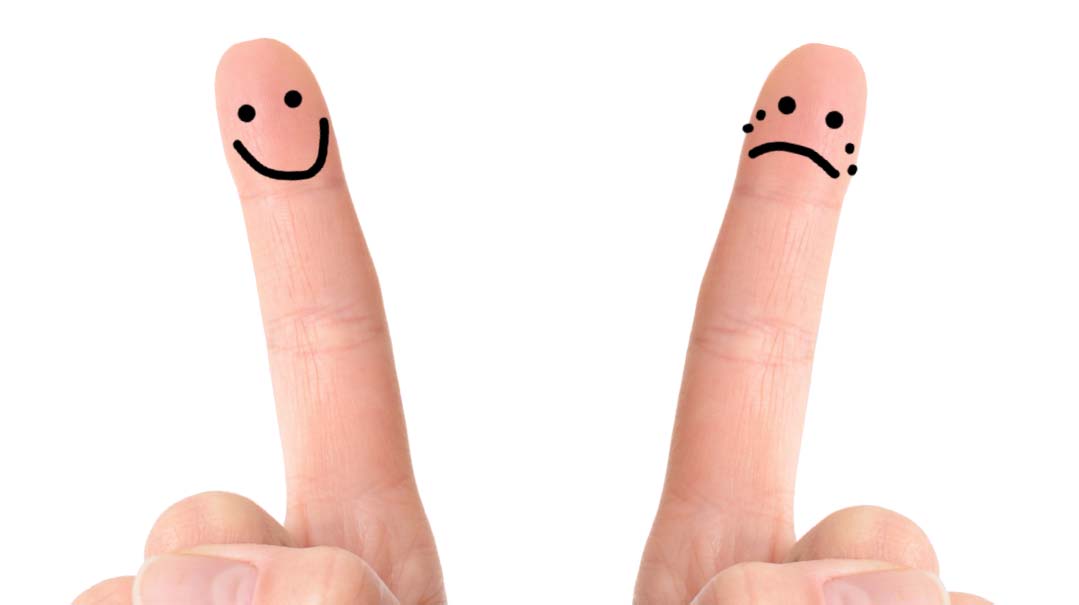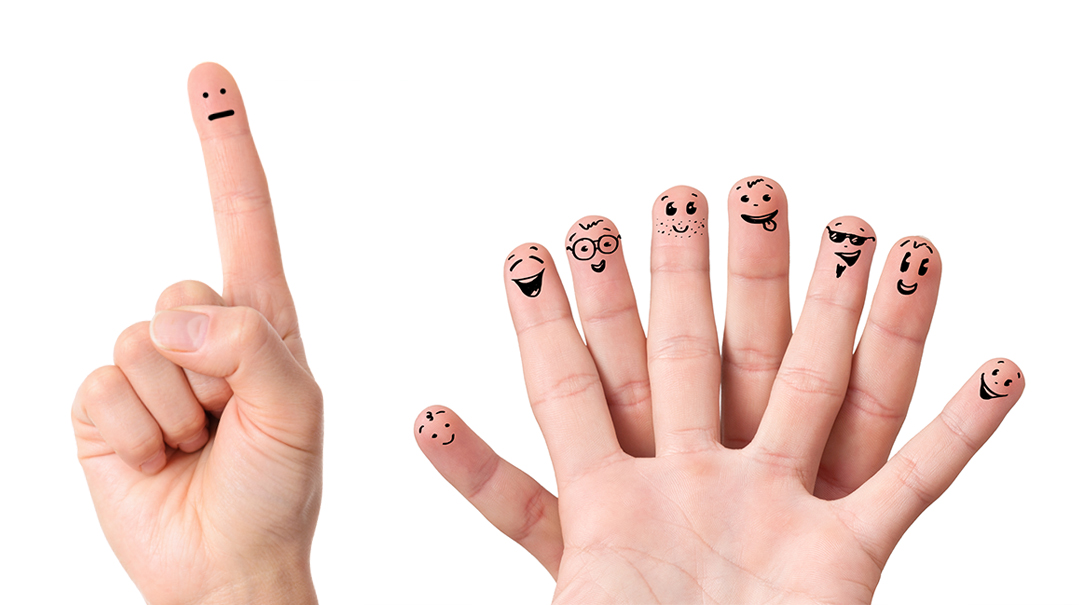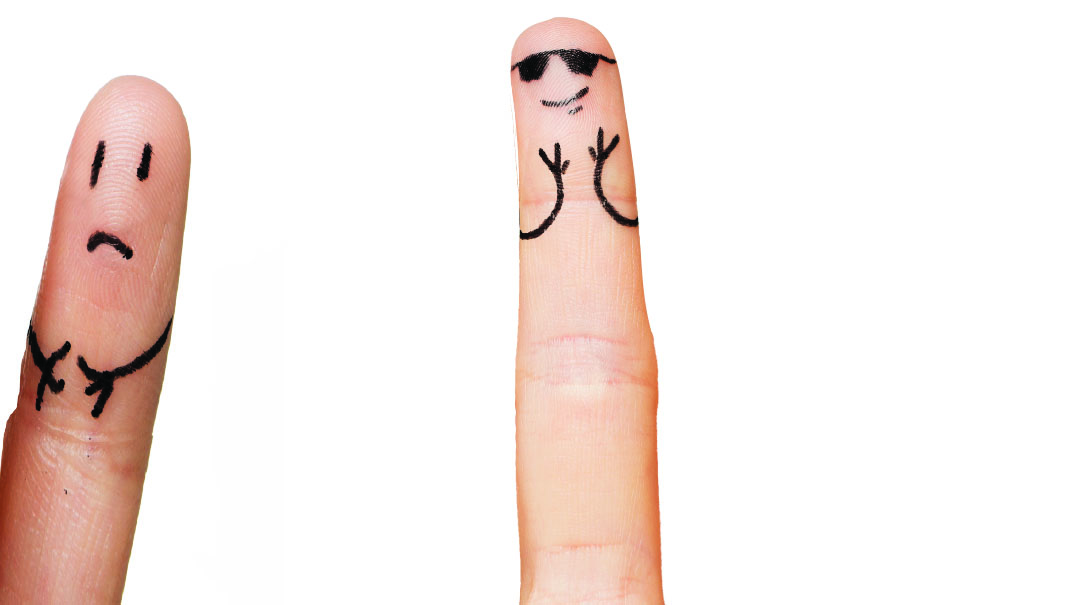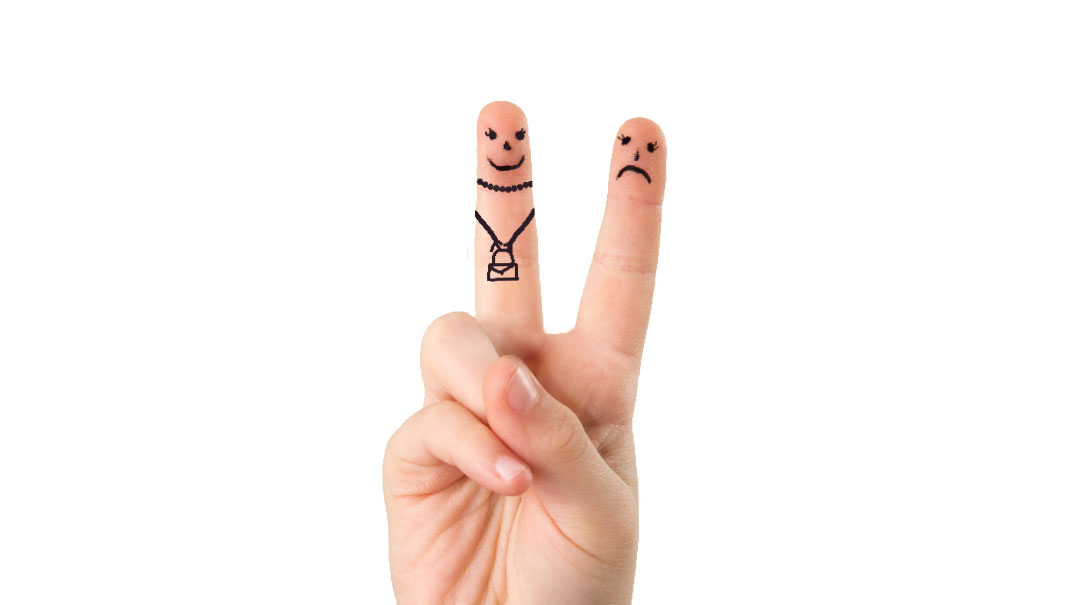Are We Coworkers or Friends?

"I was shocked by this conversation. Maybe we really all had made a mistake!"
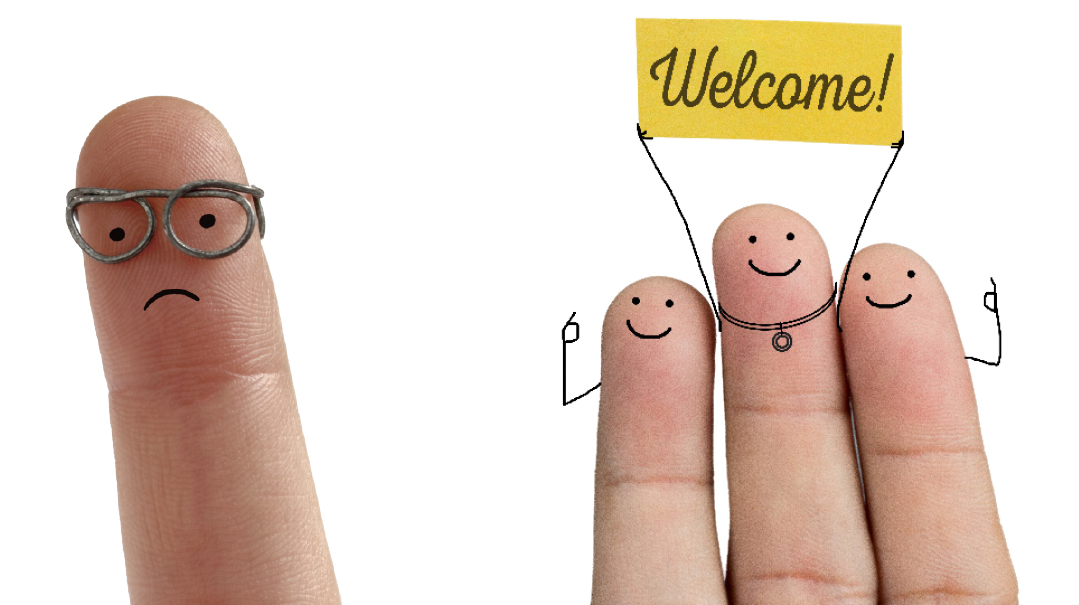
You asked
I work in an office with several other frum women. Naturally, some women are friendlier while others keep more to themselves, but overall, there’s a very nice feeling between us workmates and the office has a warm, friendly atmosphere.
Recently a friend at work (we’ll call her Rachel) was in an accident and needed minor surgery and a couple of weeks of rehab. Her work friends organized a meal train to send suppers. Once she was in rehab, many of us texted her periodically to check in to see how she was doing without overwhelming her with constant phone calls. When she returned to work, we brought in balloons, decorated her cubicle, and ordered in lunch to welcome her back.
I noticed that Rachel was much more reserved when she came back. She was still very nice, but she wasn’t her usual vivacious self — almost like she was holding us at arm’s distance. I assumed she was overwhelmed and distracted, considering everything she’d been through in the last month.
At the end of her first week back, I watched Rachel one afternoon as she packed up her things to leave. She seemed to be back to herself physically, but she was still withdrawn from the chevreh and was kind of keeping to herself. When she walked out, I ran to catch up with her and asked her how she was doing. She smiled and assured me she was doing great. I asked her if she was feeling back to herself, because she seemed much more subdued since she came back.
Then she dropped her bombshell. She told me she hadn’t planned to say anything, she felt silly, she didn’t want to be overly sensitive, but since I was bringing it up, she’d be honest with me.
It turned out that she’d been hurt. She said that she really appreciated that we sent her family food for supper and Shabbos, and all the texts she got, and the beautiful welcome back. But, she continued, not one office mate had come to visit her during the month she was out, nor had she received a single real phone call. Texts, sure, and an abundance of get-well memes, but no one had actually picked up the phone and called her to talk.
She said she wasn’t angry or upset at anyone specifically, rather it was enlightening to her. I watched her eyes well up as she choked out this admission. She’d thought that her work friends were real friends, not simply workmates, but we’d responded as casual workmates, which made her realize she’d misread the dynamics in the office.
She smiled sadly at me. “I always considered you all my friends. I know everyone is super busy, and again, I’m grateful for what you did. But it made me see that you’re great office mates, but we’re not personal friends.”
She was quick to assure me that no one did anything wrong, she wasn’t angry at anyone, just that she felt dumb for thinking something that was, wasn’t.
I was shocked by this conversation. Maybe we really all had made a mistake!
When do workmates cross over into actual friends? I feel terrible that the things that define a real, true friend didn’t carry over when an office friend was going through a tough time. On the other hand, maybe someone else would have considered a hospital visit or personal phone calls after surgery intrusive from a work friend?
I’m trying to make sense of this. Is there any right or wrong here, or is it purely subjective, not even depending on the particular office, but on each individual working there? I feel very bad that Rachel got hurt, and I’m wondering what we could have done differently so this doesn’t happen again.
We answered
Mrs. Rivka Sender is a CPA and founder of HaSviva, an organization launched by professional women to support frum women with the challenges in the modern workplace. She trains and coaches frum offices and individuals in this area.
I’ll begin by saying I feel very bad for Rachel, though this is no one’s fault. You mention that you work in a frum office with several other frum women. This discussion is geared toward relationships with frum women in the workplace. Personal advice should be sought with regard to workplace relationships with non-frum (or non-Jewish) coworkers.
While there may not be one clear-cut answer for the unfortunate situation that occurred, there are certainly ideas we can explore regarding friendships in the workplace in general.
Not only will every office have its particular dynamics, but each individual’s need for friendships at each point in her life will differ. We can’t expect people to become true friends solely by virtue of being thrust together in the same office, much like people don’t become good friends merely because they’re placed in the same class or sit next to each other.
These situations might create an environment where true friendship can develop, but they don’t guarantee or prescribe friendship. Generally, real friendship is created by sharing personal feelings, thoughts, and aspirations — not just pictures, recipes, and shopping advice.
It’s hard to gauge, without knowing the history, what type of relationship this was. It’s possible that Rachel unrealistically thought that the relationship was more than it was, or maybe, in fact, there was more of a bond with some of her workmates. Given the busy nature of many women today, there are those who may not have kept up old friendships and therefore rely on their workmates for their social life. That’s certainly common.
Relationships exist on a continuum. A workplace relationship may be somewhere in the middle: more than just a casual friendship, but less than a deep friendship. I sense this may be the case for many of the workmates in your office.
This mid-level friendship demands something more than a casual friendship. The women in your office may each have different perspectives on this particular relationship based on their own needs. While it would be wonderful if we could each subtly determine which of the women in the office feel the same way we do, this isn’t realistic. We know from Mishlei (27:19): “Kamayim hapanim lapanim, ken lav hadam l’adam — just as water reflects the face looking into it, so does the heart of man.” But there are exceptions to this; we may not always be able to judge the other person’s position based on our own.
One way to ascertain the nature of the relationship is to consider to what degree the other person opens up and shares things about her personal life, including her struggles. The more she does, the greater the indicator that she may view this as a deeper friendship. We also need to consider her personality in general. If she’s the type to open up to everyone, then her sharing may not signify a deeper friendship, but it may also mean she’s the type to expect more of even casual relationships.
You share that Rachel is upset that she didn’t receive a single real phone call. Many of our social interactions are relegated to texting and emailing. These offer a nice opportunity to keep in touch, but are no substitute for true conversation. I’m as guilty as the next woman (ask my family members!) so I may not be qualified to dispense this advice. Rachel’s workmates believed that by texting Rachel, they were letting her know they cared about her. And I’m sure they did care about her, but texting is no substitute for picking up the phone — especially in a friend’s time of need.
Further, because the written word is missing our emotions and intonations, it’s more subject to being misconstrued, and is potentially damaging to our relationships. Finally, and perhaps most important here, is that texting certainly cannot provide empathy and a listening ear.
I appreciate that you didn’t want to bombard Rachel with constant phone calls. This was done (or, rather, wasn’t done) with her best interests in mind. But perhaps there could have been an effort made to see if anyone actually spoke to her, and coordinate things so that she wouldn’t be bombarded.
Another point I’d like to mention is that while you fear some might consider a visit intrusive or too personal, you lose nothing by offering. Basic bein adam l’chaveiro might dictate a visit, if not in the hospital, then maybe in rehab. Bikur cholim is a basic tenet of bein adam l’chaveiro, and we learn this from no less than HaKadosh Baruch Hu Himself who “visited” Avraham Avinu. We’d go be menachem avel a workmate without batting an eyelash. The mitzvah of bikur cholim is recorded in the same mishnah.
The common theme in both these points is that sometimes we’re too concerned with intruding, when the person is actually thirsty for contact. We should try and put ourselves into the shoes of the other person, and understanding her nature and personality, try to figure out what she’d want in the situation.
I make all these suggestions with the benefit of hindsight, not knowing if I would have done any better had I been in your office at the time. But at least I’ve learned from your question to be more attuned in the future, so while I wish you hatzlachah, I thank you as well.
A friendship born in a workplace with a like-minded colleague can be tremendously rewarding for a busy woman who spends a big chunk of her day at her job. This friend may better understand her daily challenges and provide support and encouragement on an ongoing basis.
Many offices operate with an overall feeling of friendliness and camaraderie and may take proactive steps to promote these feelings within the company. It’s important to keep your eyes open regarding whether the people with whom we share these “good feelings” are those with whom we should be developing close friendships, particularly in more heterogeneous environments. It’s advisable to seek advice, support, and/or mentorship when faced with questionable work friendships.
Further, in friendly female environments, even very frum ones, how much are we sharing? It’s common to let down our guard with women with whom we interact for so many hours daily, yet it’s the ABCs of interpersonal relationships: The more we share the closer we become. Some offices may be very socially stimulating, but the topics of discussion may not always be ones that we should be contributing to. It’s worthwhile to think twice before sharing in public settings, considering privacy and permissible speech, and don’t be afraid to change the topic of conversation.
When discussing something in the open, be considerate and ask yourself if the topic conversation is generally applicable to the others around you. We sometimes don’t even realize that we may be hurtful or insensitive in our conversations.
(Originally featured in Family First, Issue 730)
Oops! We could not locate your form.







